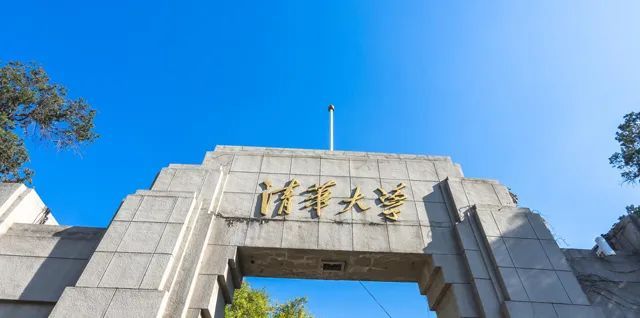QS世界排名发布,中国高校表现不俗
6月10日,最新QS世界大学排名发布,三所中国顶尖大学获得了其QS排名史上的最高排名。清华大学再次打破了去年创下的中国大学的最高排名,从世界第16名上升到第15名,在亚洲大学中排名第三。
Tsinghua University has achieved its best ranking this year in the latest QS World University Rankings. TUCHONG
↑↑点击播放音频↑↑
Choosing an ideal university may be the first major life decision for many teenagers. Among the many potential factors, university rankings may be one of the most important for students to look at.
对于许多青少年而言,选择一所理想的大学或许是人生中首个重大决定。在众多可能的考虑因素中,大学排名或许是学生们最为看重的其中一项。
The latest edition of the QS World University Rankings was released on June 10, confirming significant progress for China’s higher education.
6月10日,最新一期QS世界大学排名发布,中国高等教育取得了重大进步。
Fifty-one universities from the Chinese mainland have been included in the global top 1,000, compared with 42 in its last rankings, according to China Daily.
据《中国日报》报道,今年我国共有51所内地高校入围世界前1000名榜单,去年则为42所。
Tsinghua University, China’s highest-ranked university, rose from 16th place last year to 15th, leaving Yale University behind. It has achieved its best ranking since the list was first published in 2004, China Daily reported.
作为中国排名最高的学府,清华大学全球排名第15名,相比去年的第16名上升一名,力压耶鲁大学。据《中国日报》报道,这是该榜单自2004年发布以来,清华大学所取得的最好排名。
According to University World News, Tsinghua’s rise is primarily due to improvements in its academic standing and research impact. Peking University slipped one place to 23rd. Fudan University has also reached a new height – rising from 40th to 34th – and Shanghai Jiao Tong University placed 47th, entering the global top 50 for the first time.
据“世界大学新闻”网站报道,清华大学排名上升的原因,主要是因为该校在学术地位及研究影响力上的进步。北京大学排名第23名,较去年略降1位。复旦大学也创下了历史最好成绩 —— 排名从第40名上升到第34名 —— 上海交通大学排名第47名,首次进入全球前50名。
This year’s rankings feature 1,000 universities from 80 countries and regions. The rankings use six indicators, including academic and employer reputation, citations per faculty, student-to-faculty ratio and international student and faculty ratio.
今年的排名包括了来自80多个国家和地区的1000所大学。榜单共有6项排名指标:学术声誉、雇主声誉、单位教员论文引用数、师生比例、国际学生比例、国际教师比例。
It is not a surprise that Chinese universities have continued to perform well in academic research, according to Ben Sowter, the director of research for QS.
QS研究总监本·索特认为,中国高校持续在学术研究方面表现不俗并不令人意外。
In fact, when the QS rankings were first published in 2004, there were only two universities from the Chinese mainland that entered the global top 100 and just 10 in the top 500.
事实上,当QS排名2004年首次发布时,中国内地只有两所高校进入全球前100名,10所高校进入全球前500名。
Many experts point to the substantial investment the Chinese government has injected into its higher education sector, thanks to various initiatives like the 211 Project, the 985 Project and the Double First-Class Initiative, QS stated.
QS指出,许多专家认为,211工程、985工程以及“双一流”建设等种种决策让中国政府对高等教育进行了大量投入。
“China has attached great importance to establishing itself as a world leader in higher education, and the ... competitiveness and influence of Chinese universities have also seen rapid development in recent years,” said Christina Yan Zhang, QS’s China director.
“中国十分重视建设高等教育强国,中国高校的竞争力及影响力近年来也取得了快速的发展,”QS中国总监张巘如此表示。
On June 3, the latest Times Higher Education (THE) Asia University Rankings were also released. Tsinghua University and Peking University have secured the top two spots among Asian universities for the first time. This year’s rankings also saw Chinese mainland universities claiming three of the top 10 positions for the first time, with the University of Science and Technology of China listed for 10th.
6月3日,《泰晤士报》高等教育也正式发布了最新一期亚洲大学排名。清华大学和北京大学首次位居亚洲大学前两位。此外,在今年的榜单上,中国内地高校首次在前10名中占据三席,其中,中国科学技术大学位居第10位。
“China has been ahead of a lot of Asian countries and regions in prioritizing the knowledge economy and prioritizing investment in great universities,” noted THE’s Chief Knowledge Officer, Phil Baty. Meanwhile, “the world will see more Chinese scholars producing research at the highest level in leading journals, which will further improve Chinese universities’ rankings,” he added.
“在优先发展知识经济以及对优秀大学的投入方面,中国已经领先于许多亚洲国家及地区,” 《泰晤士报》高等教育首席知识官菲尔·巴蒂指出。与此同时,“全世界将会看到越来越多的中国学者在领先期刊上发表最高水平的研究成果,这将进一步提升中国高校的排名,”他补充道。
![]()
![]()

